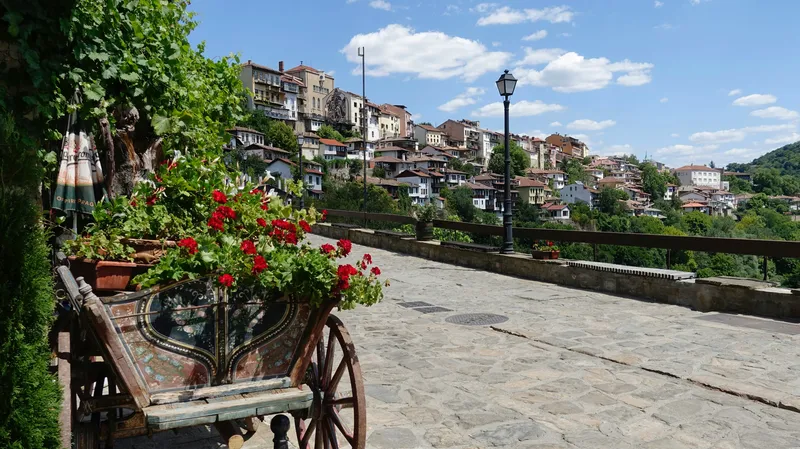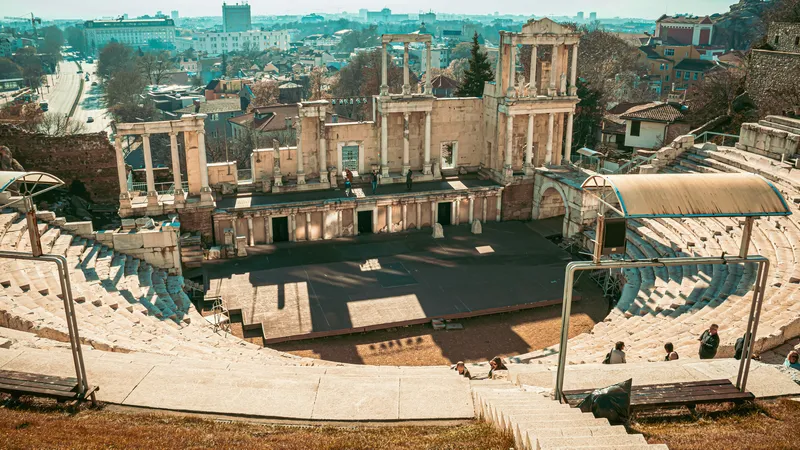Teach English in Bulgaria
The Ultimate 2026 Guide to Language Schools, Type D Visas, and Life in the Balkans.
Bulgaria is the hidden frontier of the European TEFL market. While Spain and France are saturated, Bulgaria offers a growing demand for English teachers, particularly in the business and private sectors. It combines a rich Slavic heritage with beautiful Black Sea beaches and ski resorts, all at one of the lowest costs of living in the EU.
For EU citizens, Bulgaria is an accessible paradise with zero visa red tape. For Non-EU citizens (Americans, Canadians, etc.), the market is more challenging but rewarding. You generally need to secure a contract with a major school to sponsor your "Type D" long-stay visa, or apply through specific government programs like Fulbright.
In 2026, competition for the best jobs in Sofia and Plovdiv is rising. A myTEFL 120-hour certificate is often the key differentiator that convinces an employer to go through the administrative effort of hiring a non-EU teacher over a local applicant.
Quick Facts
What’s in this guide?
Your roadmap to the Balkans. From understanding the "Single Permit" work authorization to finding the best ski towns for winter teaching.
- The TEFL jobs market in Bulgaria
- Private Academies vs. International Schools
- Teacher Salary in Bulgarian Lev (BGN)
- EU Citizens vs. Non-EU Visa Rules
- Requirements for 2026
- School Terms & Summer Camps
- Cost of living: Sofia vs. Varna
- Where to teach: Sofia, Plovdiv, Burgas
- Getting hired: The Independent Route
- Bulgaria TEFL FAQs

The TEFL jobs market in Bulgaria
Bulgaria is an emerging market for English teachers. While it lacks the sheer volume of jobs found in Asia, it offers a high quality of life for those who secure a position. The market is dominated by Private Language Schools (like AVO, Britanica, and English Academy) which cater to children after school and adults seeking business English.
For Non-EU citizens, the hiring process is bureaucratic. Schools must prove that no local Bulgarian or EU citizen could fill the role (a "Labor Market Test") before hiring you. This means you need to be highly qualified—a degree and a reputable TEFL certificate are essential to justify your hiring to the Ministry of Labor.
However, there is a niche for Summer Camps along the Black Sea coast and in the mountains. These short-term contracts are a popular way for new teachers to get a taste of the country during June, July, and August.
- Population: 6.5 million
- Language(s): Bulgarian (Cyrillic)
- Currency: Bulgarian Lev (BGN)
- Capital city: Sofia
- Estimated salary: 1,500 - 2,500 BGN
- Public Holidays: ~14 days
- Climate: Continental (4 Seasons)
- Main Transport: Metro, Bus & Train
- Internet: Fast & Reliable
Types of English teaching jobs in Bulgaria
Choose between year-round stability in the capital or seasonal work on the sunny Black Sea coast.
Private Language Schools
The standard employer. You teach small groups of children or adults in the evenings and weekends. Major chains (Britanica, AVO) are the most likely to sponsor visas.
- Salary 1,600 - 2,200 BGN
- Hours 20-25 Teaching Hours
- Reqs TEFL + Degree
Summer Camps
Short-term contracts (Jun-Aug) located in beach resorts or mountain towns. High energy, fun environment, often includes room and board.
- Salary 1,000 - 1,500 BGN (Plus board)
- Duration 4 - 10 Weeks
- Visa Easier for Short Term
International Schools
Elite schools in Sofia (Anglo-American School, etc.). These jobs pay Western salaries but require a full state teaching license and 2+ years of experience.
- Salary €2,000 - €3,000+
- Benefits Housing + Flights
- Reqs Licensed Teacher Only
Fulbright ETA Program
For US Citizens only. A prestigious government exchange placing you in public high schools across the country. Highly competitive application.
- Stipend Covers Living Costs
- Support Visa & Housing Help
- Apply 1 Year in Advance
TEFL teacher salary in Bulgaria
Salaries in Bulgaria are modest by Western standards but provide a comfortable lifestyle locally. A typical teacher earns 1,500 to 2,200 BGN ($850 - $1,250 USD) per month. While this sounds low, it is nearly double the local minimum wage.
Most contracts operate on a gross salary basis, with about 10% deducted for flat-rate income tax (one of the lowest in Europe) and additional social security contributions.
Housing is rarely included in the contract (except for International Schools), so you will rent your own apartment. However, rent is affordable, allowing you to live alone in a city center without roommates—a luxury often impossible in Western Europe.
Monthly Salary Range (BGN)
| Language School (Net) | 1,500 - 2,000 |
| International School | 3,500 - 6,000 |
| Private Tutoring (Hourly) | 25 - 40 /hr |
| 1-Bed Apartment Rent | 600 - 900 |
| Utilities (Winter High) | 150 - 250 |
EU Citizens vs. Non-EU Visa Rules
EU Citizens: You have the right to work in Bulgaria without a permit. You simply need to register your address with the local police and apply for a Long-Term Residence Certificate if staying over 90 days.
Non-EU Citizens: You need a Type D (Long Stay) Visa and a Single Permit (Work & Residence). This is a complex process. Your employer must sponsor you and prove that they searched for a local candidate first (Labor Market Test).
The Document Stack
To get a Type D visa, you typically need: Legalized Degree, Legalized TEFL certificate, FBI/Police Background Check, Medical Insurance, and a Rental Contract. You usually must apply from outside Bulgaria (e.g., your home country or a neighboring country where you have residence).
Because of this red tape, many non-EU teachers start as freelancers online or target large chain schools that have dedicated legal departments to handle the paperwork.
Requirements to teach English in Bulgaria

To secure a legal work permit in 2026, you must meet the specific criteria set by the Bulgarian Ministry of Labor.
- Bachelor’s Degree Mandatory for Work Permits. The degree can be in any field, but it must be apostilled/legalized.
- 120-Hour TEFL Certificate Essential. Most employers require this to prove your qualification, especially if your degree is not in Education or English.
- Native English Speaker Preferred but not legally required. Non-natives with a C2 level of proficiency and a strong accent can find work, especially in private tutoring.
- Clean Criminal Record You must provide a background check from your home country that is less than 6 months old to apply for the visa.
School Terms & Summer Camps
Academic Year: Runs from mid-September to late May/June. The peak hiring season is late August/September and again in January.
The Summer Season
Unlike many countries where summer is dead, Bulgaria has a thriving summer camp industry on the Black Sea coast. This is a great way to pick up extra work or start your journey in the country.
Working Hours: Private language schools often require afternoon and evening work (e.g., 2 PM - 8 PM) to accommodate students after their regular school day. Weekends may also be required.
Cost of living & Savings in Bulgaria
Bulgaria is one of the most affordable countries in Europe. Your money goes a very long way here.
Housing: A nice 1-bedroom apartment in the center of Sofia costs roughly 700-900 BGN ($400-$500 USD). In smaller cities like Veliko Tarnovo, it can be as low as 450 BGN.
Food & Travel: A meal at a mid-range restaurant is 15-20 BGN. A beer is 3-5 BGN. Public transport is incredibly cheap, with monthly passes costing around 50 BGN. Ski trips to Bansko or weekends at the beach are very affordable on a teacher's salary.
Monthly Budget (Single Teacher)
| Rent (1-Bed City Center) | 700 - 900 BGN |
| Utilities (Winter) | 150 - 250 BGN |
| Groceries | 400 - 600 BGN |
| Transport | 50 - 60 BGN |
| Leisure/Skiing | 300 - 500 BGN |
Where to teach English in Bulgaria?
From the bustling capital to the ancient cultural heart and the seaside resorts.

Sofia (The Capital)
The economic hub. Home to the most language schools, international companies, and expat life. Vibrant, walkable, and close to Vitosha Mountain for skiing.

Plovdiv (Ancient City)
Europe's oldest inhabited city. Famous for its arts district (Kapana) and relaxed pace. Cheaper than Sofia and very popular with artists and digital nomads.

Varna (Sea Capital)
The largest city on the Black Sea. Bustling in summer, quieter in winter. A great place if you want to teach near the beach and enjoy a maritime climate.

Veliko Tarnovo
The medieval capital. Stunning architecture clinging to hillsides. A university town with a low cost of living, ideal for those seeking history and nature.
How to get a job in Bulgaria
For non-EU citizens, the visa process requires a committed employer. Having professional credentials is the best way to prove to a school that you are worth the paperwork.
Get Your 120-Hour Certificate
Bulgarian employers prefer candidates who can hit the ground running. A 120-hour myTEFL certificate validates your teaching skills and is often a requirement for visa support at top schools.
- Visa Support: Essential for the Work Permit application.
- Hireability: Stand out against EU applicants.
- Accredited: Recognized by Bulgarian Ministry.
- Legalization Help: We assist with legalizing your TEFL for the Type D Visa.
Frequently Asked Questions
Crucial info for the 2026 Bulgarian teaching landscape.
